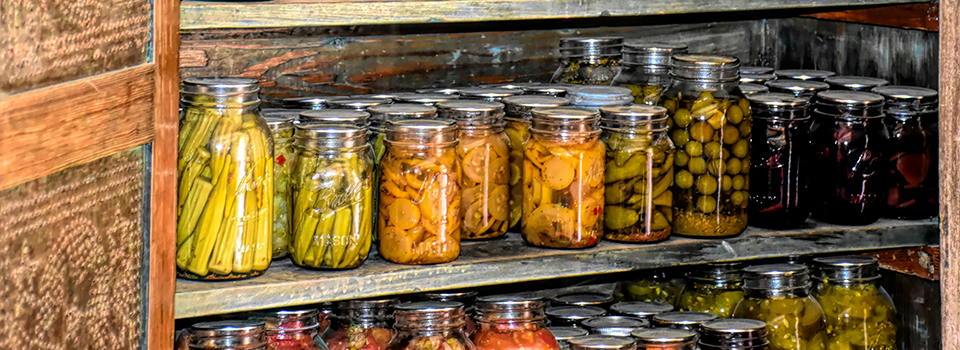
Canned food that freezes can be saved, K-State food scientist says
Are frozen canned foods still safe to eat?
K-State food scientist says broken or unsealed jars or cans should be discarded
At a glance: Power outages during cold weather may allow canned or jarred food to freeze and become unsafe to consume. K-State food scientist Karen Blakeslee shares tips to keep those foods safe to eat.
More information: Karen Blakeslee, 785-532-1673, kblakesl@k-state.edu
Related: Rapid Response Center | You Asked It! newsletter
Jan. 31, 2024
By Maddy Rohr, K-State Research and Extension news service
MANHATTAN, Kan. – With recent cold weather and power outages come many challenges, including food safety. Kansas State University food scientist Karen Blakeslee said frozen canned or jarred foods can be a safety hazard.
“If you have canned foods, either home canned or commercially canned, in a storage location that froze, first check for broken seals or seams in metal cans or broken glass in home canned foods due to expansion of the food and liquid inside the container,” Blakeslee said.
If all preservation containers are intact, they can be saved.
“Thaw (the canned food) gradually and store it at room temperature,” Blakeslee said.
She recommends discarding commercially canned foods with broken seams or home canned foods with broken glass, as they can lead to contamination. This includes home canned foods that came unsealed and thawed.
“If a glass jar became unsealed but is still frozen, this can be safely used immediately or transferred to a new container and stored in the refrigerator or freezer,” Blakeslee said.
To prevent a future food crisis during cold weather, Blakeslee suggests wrapping jars or cans in paper and cover with blankets to insulate them.
“Another option for vulnerable storage locations is to prop open the pantry or cupboard doors to allow warm air inside,” Blakeslee said.
Blakeslee, who also is coordinator of K-State’s Rapid Response Center for Food Science, publishes a monthly newsletter called You Asked It! that provides numerous tips on food safety. More information is also available from local extension offices in Kansas.
***

K‑State Research and Extension is a short name for the Kansas State University Agricultural Experiment Station and Cooperative Extension Service, a program designed to generate and distribute useful knowledge for the well‑being of Kansans. Supported by county, state, federal and private funds, the program has county extension offices, experiment fields, area extension offices and regional research centers statewide. Its headquarters is on the K‑State campus in Manhattan. For more information, visit www.ksre.ksu.edu. K-State Research and Extension is an equal opportunity provider and employer.